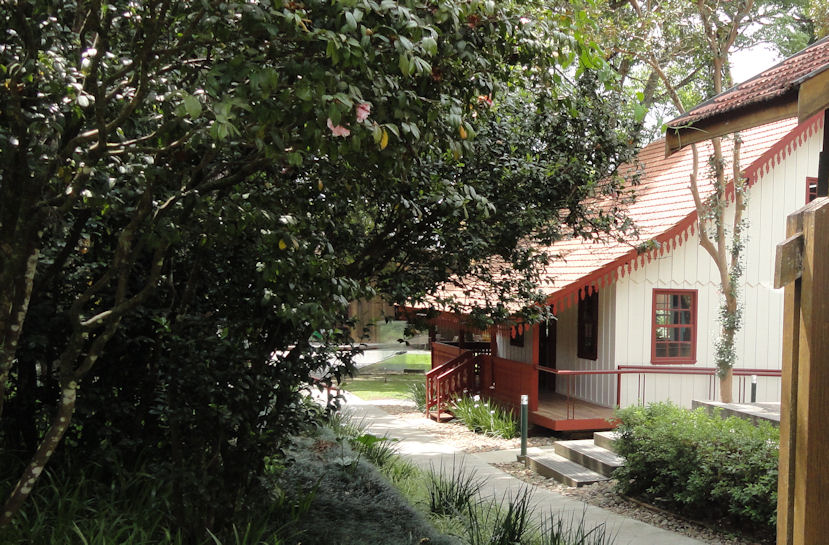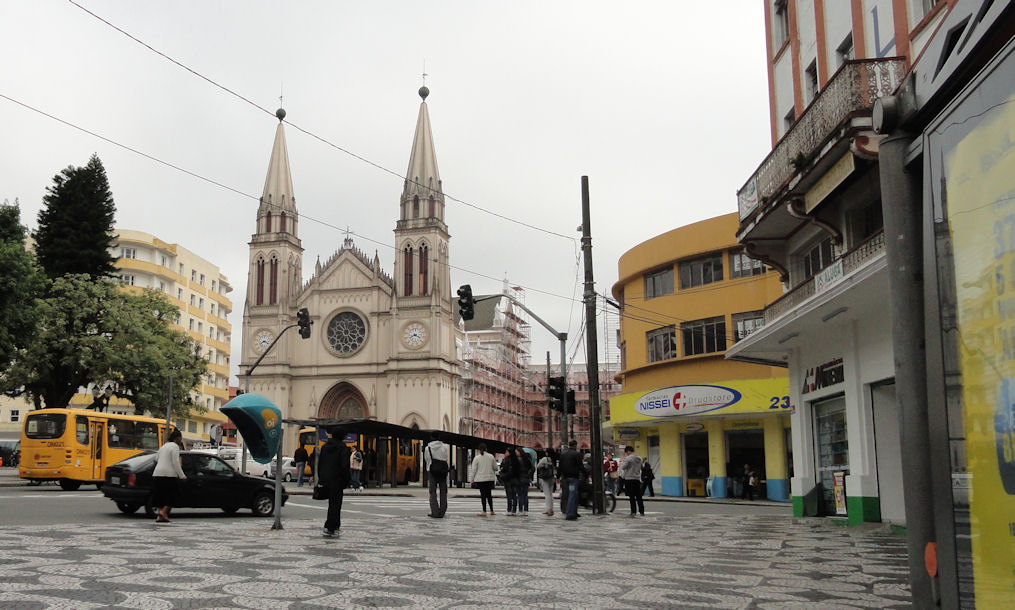
Curitiba reminds me of a European city. Immigrants from Germany, Poland, Ukraine and many other places brought themselves and their ideas and it made a big difference. During my one-day visit, three people mentioned Polish roots. That might not seem like very many, but considering the size of the sample and that they brought it up, it is significant. On the other hand, I don’t doubt that I affect the conversation when talking about the places I lived. It is the thing experts caution you about when you gather information. You often find what you are looking for or at least what you expect. When all your interlocutors seem interested in the same things, it is useful to recall that the only common threat in all this is you. Nevertheless, I would not have found them if they had not been there.
The picture above shows a “typical” Polish Brazilian house. It was a farm house someplace outside Curitiba. The city took it apart and put it back together near the urban planning center to show the history of Paraná. I heard that there is a whole Polish village in one of the parks. Pope John Paul II visited when he was in Brazil. I didn’t have the time to go.

Poles used to use the term “Polonia” to describe the Polish diaspora and sometimes counted overseas Poles as part of the Polish nation. This made some sense, since for 123 there was no Polish political entity but there were Poles and a Polish nation (narod). But it doesn’t apply much anymore.
Germans, Ukrainians and others also had a big impact around Curitiba. Rooms in the library at Positivo University were named after important local figures. I noticed that the last names tended to sound German or Slavic, while the first names were usually Brazilian. That tells the story. As in the U.S., immigrants tend to be absorbed within two or three generations. They still may be proud of their roots, but those roots are largely sentimental, a few words of the old language, taste for traditional foods. Both foods and words are modified by local flavors.
I am sure that I could find someone in Curitiba with the same ethnic mix (German-Polish) as I have, maybe even a cousin. But after a minute of talking about our “common” heritage we would revert to our true identities: American and Brazilian. The past is a different country. If we kept on talking about it, we would remember that our ancestors left the old country because they thought things were better in the New World & they were right.
Roots are good, even if they are often mostly mythical or folkloric. Immigrants change societies. The very fact of leaving creates changes people. They see some of their old culture is good, but lots just don’t apply. The new society also takes the best and leaves the rest. This makes everybody better off. I don’t know if a hot dog is better than its German ancestor, but it is more popular and I admit that I usually like the American version of ethnic food better than the “real thing.”
The modified-alloyed culture is almost always more robust, at least in the sense of providing more options. After all, both the U.S. and Brazil are the New World.
